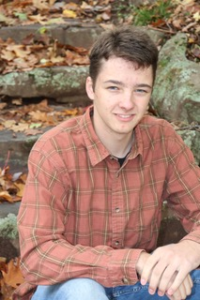Earlier this summer, I had the opportunity to spend six weeks studying at the Pontifical University of John Paul II in Krakow, Poland. It was an incredible experience and left me with much food for thought in regards to culture, history, and the Catholic faith. Among the many beautiful aspects of Polish culture that I encountered while abroad, the one that most struck me was the way in which the Catholic faith was openly, publicly practiced.
Driving through small Polish towns, nearly every house had a small shrine in its front yard featuring a crucifix or statue of the Blessed Virgin. It wasn’t uncommon to see similar statues, crucifixes, or paintings protruding from the sides of the old buildings of Krakow. Churches were sprinkled liberally throughout the city itself. Most of them were unlocked, several contained perpetual adoration chapels, and nearly all of them were stunningly beautiful. The feast of Corpus Christi was a national holiday, and hundreds of people flooded the streets for a four-hourlong Eucharistic procession starting at Wawel Cathedral and ending at St. Mary’s Basilica.
All of this seems to stand in stark contrast to the way I am used to seeing Catholicism lived out. In America, we tend to act as though the faith is an embarrassing, or at least inconvenient, aspect of our lives. We might attend Mass on Sundays, but we seldom allow the faith to be reflected in our public actions. It’s considered impolite to discuss religion at all, and even something as simple as praying before a public meal makes us uncomfortable. Yet, the people around us are desperate for Christ’s healing truth. How can we hope to reach the countless souls in need of his love and mercy if the faith remains a private matter?
I think we can learn something from the Polish people’s open display of their faith. Granted, Poland has a Catholic tradition that stretches back to 966 AD, and still stands as one of the last bastions of Christian Europe. America, on the other hand, has historically had a rocky relationship with Rome, and now is home to a distinctly post-Christian culture. However, this is not a good reason to keep our faith a private matter. In Bishop James Powers’ recent Pastoral Letter on Evangelization, he points out that “Like the Israelites in the Old Testament who longed to be like the other nations to their great detriment, in how many ways have we turned our backs on the fullness of Christianity? Sadly, we have largely relegated the faith to a pious practice on Sunday mornings and perhaps before meals.” The urgent need for evangelization in our country is all the more reason to take our faith into the public sphere. Souls depend on our witness, and as American citizens, our right to practice our religion is protected by law.
Catholic writer Dr. Anthony Esolen calls our tendency to keep religion to ourselves a “self-imposed catacomb.” In his book “Out of the Ashes,” he denounces the idea “…that the ‘free exercise of religion’ is satisfied by pleasant rites held inside a church.” Esolen later encourages us to bring our faith to our communities: “For every single offense against the vigorous liberty of the church, we will walk and pray in two outdoor processions with the Sacrament, host two lectures, organize two summer picnics with Mass outdoors, march to the cemetery on Memorial Day, and in general be so merry and open, so solemn and cheerful, so rich in the beauty and the depth of our faith, that despite themselves people will look our way and want to share in the wine we are drinking.” The public practice of our faith is a critical step towards bringing about a New Evangelization.
Archbishop Charles Chaput once said that “Religious faith is always personal, but it’s never private. It always has social consequences, or it isn’t real.” May we fearlessly attest to the reality of the faith by proclaiming it publicly, both through our words and our actions. May we bring the richness of our Catholic culture into secular society rather than keeping our faith under the proverbial bushel basket. And may Christ give us the courage to live authentic lives of truth and love, and so draw others closer to him.
Aidan Jones is a young Catholic writer and filmmaker currently residing in the Northwoods of Wisconsin. He is a parishioner of the Cathedral of Christ the King, Superior.

Aidan Jones
